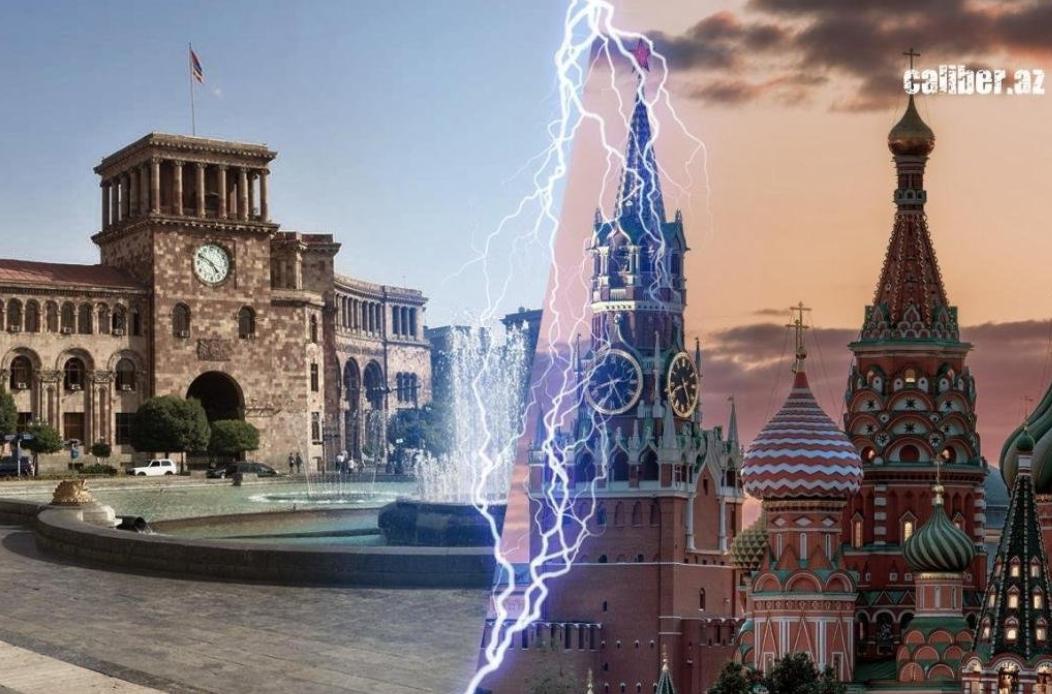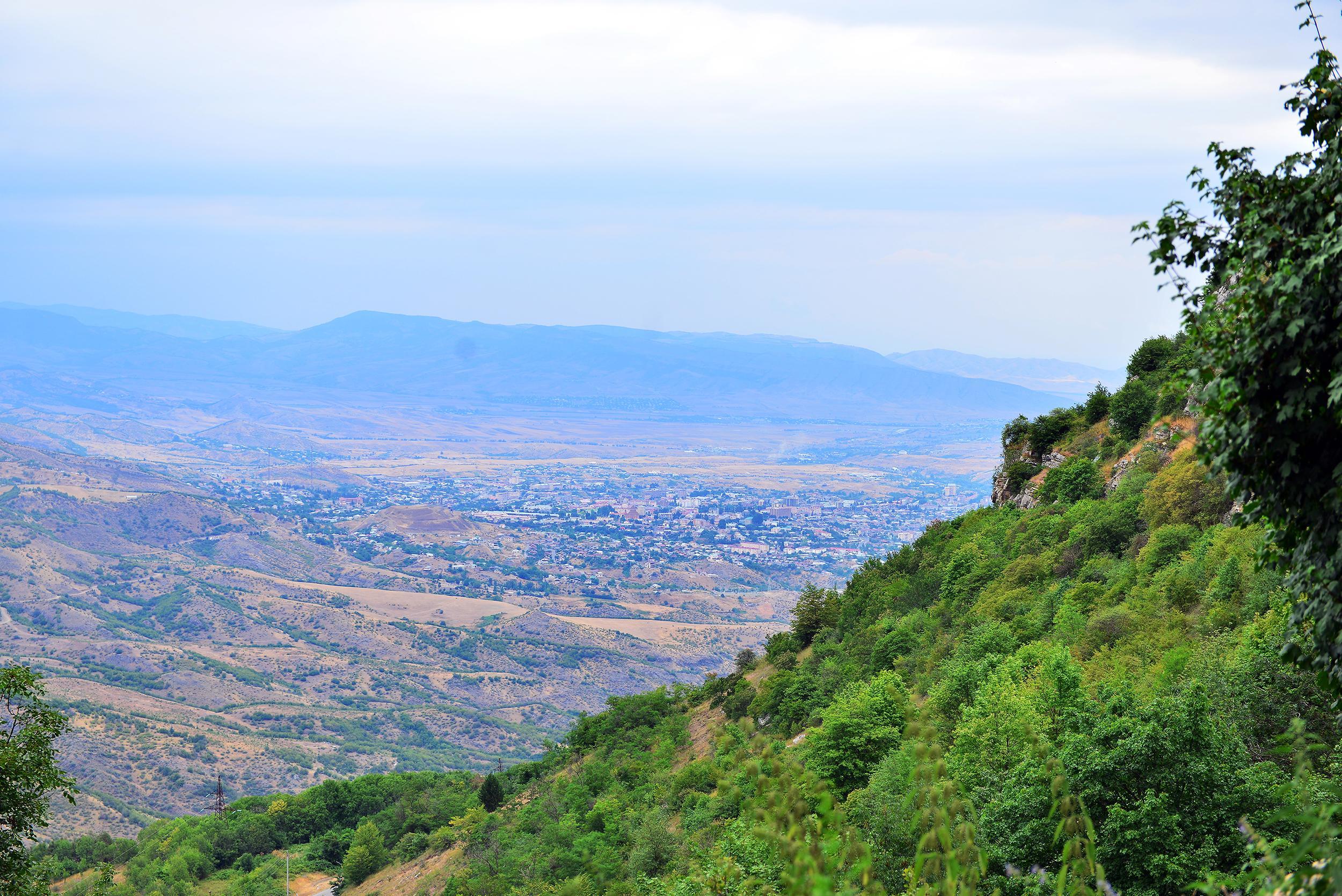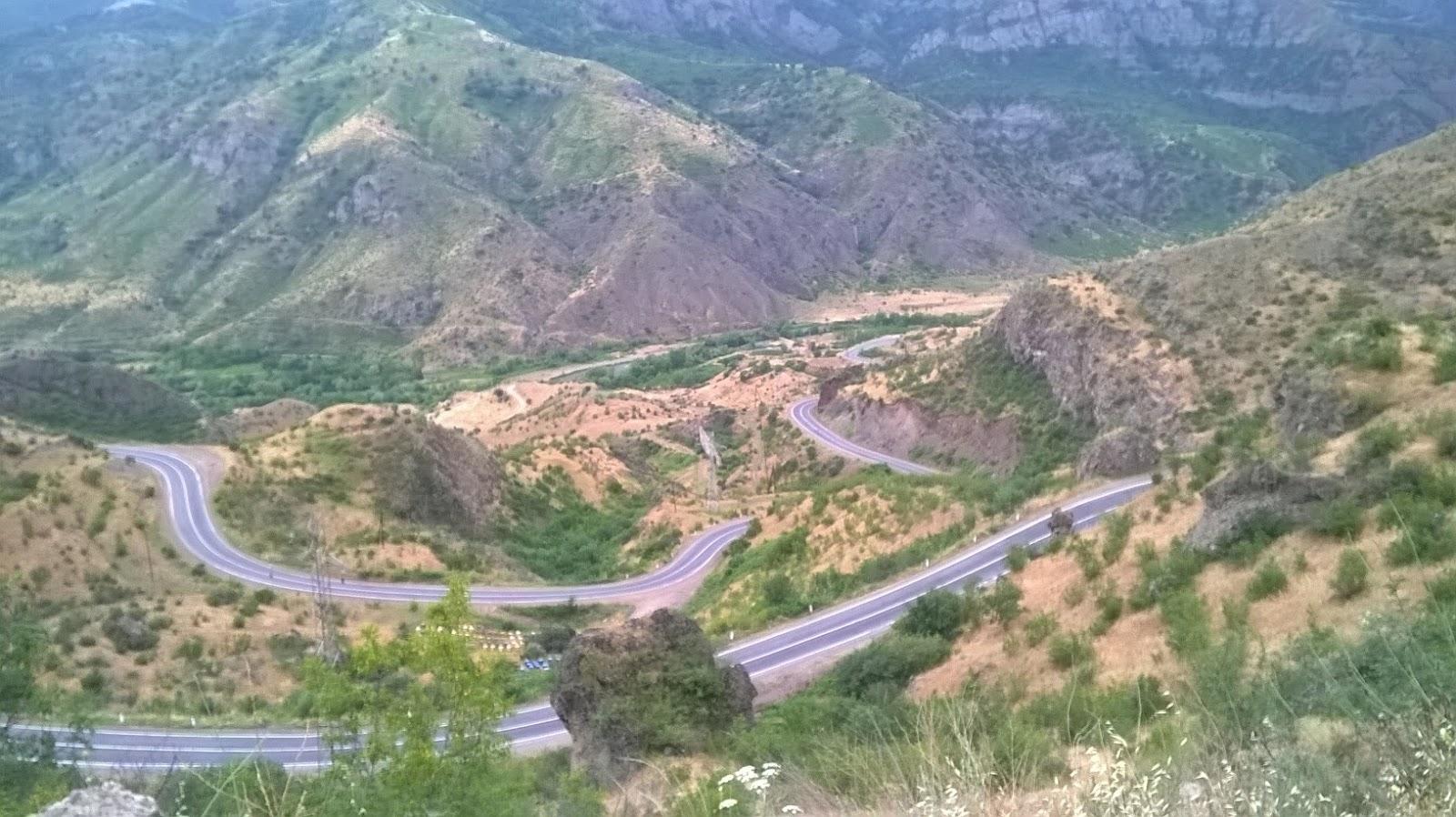“Prevailing feeling in Armenia is fear that Baku will go further” Nasibova’s difficult conversation with Krivosheev
Caliber.Az interview with a Russian journalist, author of the Carnegie Berlin Center for the Study of Russia and Eurasia Kirill Krivosheev.
- Kirill, how would you assess the current level of Armenian-Russian relations against the backdrop of Armenia’s constant glances to the West?
- The crisis in relations is obvious, and it is developing. However, it does not yet appear that Russia has imposed any specific price on Armenia for its behavior. It is now important for Moscow to maintain sympathy among the Armenian population, and any economic steps like raising gas prices or a trade blockade on Verkniy Lars will primarily hit those who still believe in Russia. It is possible that Moscow may make some statements after the visit of the secretary of the Armenian Security Council to Washington, depending on the results of his negotiations.
- It is obvious that Moscow is not ready to let Yerevan out of its orbit of influence. In this regard, how likely is Armenia’s exit from the CSTO and the EAEU?
- I think Russia would definitely not want to let Armenia go. But so far, as I have already said, clear levers of retention are not visible. Yes, there is a 102nd base, there are border guards. As I understand it, in the current situation there is no talk of revising these formats of Russia’s military presence in the region. The agreement on the military base is valid until 2044.
As for the EAEU, it is useful for Yerevan and even its neighbors, such as Iran. Customs clearance of goods in Armenia for shipment to Russia is generally a good mechanism.
But the CSTO is quite possible. This format has not shown any effectiveness, and most likely Armenia will want to leave it when it finds an acceptable replacement in the West. The search is underway now.

- Do you really think that the West will harness Armenia’s support and begin to solve its problems?
- In my opinion, in Armenia, there is a serious problem with who to support instead of Pashinyan. Of course, you can ban money transfers, you can stifle exports. But what in return? Neither Pashinyan nor the Armenian society will have any reason to love Russia again. And yes, even such fans of Russia as Kocharyan currently do not say much, since there is nothing to say.
The dualism “Pashinyan or Kocharyan” is a serious problem both for Armenia itself and for Russia. The 2021 elections showed that betting on Kocharyan is wrong - people will vote for Pashinyan in order to avoid the return of the ex-presidents and there is no one else. Probably some young political forces should appear, but they have not appeared yet.
- You often visit Armenia. Have you noticed how strong the propaganda of hatred towards Turks and Azerbaijanis is there?
- No. In Azerbaijan, the militaristic rhetoric is stronger. And this is one of the factors that has made a peace agreement impossible until now. There are practically no problems with Turkey at all. I am convinced that the best scenario for the region is the opening of the land border between Armenia and Turkey and a “cold peace” with Azerbaijan.
- Are Armenians ready for peace with Azerbaijanis?
- The prevailing feeling in Armenia is fear that Baku will go further. That talk about Western Azerbaijan will become a reality. At the same time, I hardly notice any revanchism regarding Karabakh. Some people have it, but not the decision makers.
- Fear is a consequence of the daily propaganda of the Armenian media, which tirelessly supports the long-established image of Azerbaijan as an enemy in Armenia. Or do you have anything to object to?
- No, I don’t agree. What did Baku do to convince the Armenians? Why was the reintegration plan published on October 2, 2023?
- Don't get ahead. If you monitor the Armenian media, then it is unnecessary to remind you of the anti-Azerbaijani and anti-Turkish propaganda...
- Examples, please. Fresh from 2023. Before the war of 2020 - yes, it was different and very unpleasant. But what about the current stage? Is someone planning to take Shusha back?
- Even if they plan, they understand that there is no chance of doing this in the foreseeable future. Perhaps that is why they are frantically arming themselves from different countries. Russia no longer supplies military equipment to Armenia.
- If Kapan and Sevan (Kapan, Goycha - ed.) are Armenia, period, then Karabakh is Azerbaijan, period. Probably so. But, as I understand it, now it is in Azerbaijani society that the conviction is being cultivated that the matter is not over, that there must be a return of refugees to Kapan, that there must be a Zangezur corridor. And these are direct obstacles to the peace treaty. If it weren't for them, it would have already been signed.
- How do you imagine the opening of communications in the region (which was also indicated in the 2020 Tripartite Statement) without the Zangezur corridor?
- But I do not consider the opening of communications at the current stage necessary or even desirable. This is unrealistic. The main thing is to sign peace and recognize each other’s territorial integrity, without any additional conditions. Then, when a cold peace is established, the situation may develop and the roads may open. But for this, you need to mature. Referring to the Tripartite Statement now seems strange to me. None of the points in this document are any longer relevant. So why should we insist on compliance with this particular statement?

- Then please explain what prevents Armenia from signing a peace treaty if, as you claim, it is “for world peace”?
- Apparently, the conditions. Have you seen at least one edition of this peace treaty? They are not public. Most likely, Azerbaijan, as a stronger party, insists on some points unacceptable to Armenia. I assume that they relate specifically to the Zangezur corridor. Armenia is resisting as long as it can, attracting foreign allies.
- Do you really think that Armenia is of interest to the USA and France?
- No, but for the same European Union it is of interest to preserve the established rules of the game. Azerbaijan demonstrates the rule of the strong; the West does not particularly like this. But I completely agree with you that Armenia’s foreign policy positions are quite weak. They are ready to sympathize with her in words, but few are ready to do anything concrete.
- Armenia has only one chance for a normal life - this is to agree with Azerbaijan.
- In my opinion, a peace treaty should be as simple as possible: 1) Recognition of each other’s territories 2) Delimitation of the border 3) Refusal to use force or the threat of use of force in the future 4) It is very desirable - mutual withdrawal of troops from the borders, control only at the expense of border guards (as in Gazax District). That's all. So far - no communications, no corridors.
- Again, this is your personal opinion. Baku, meanwhile, offers reintegration and peace. What is Armenia offering?
- Reintegration is a big fake. Baku never offered it, because otherwise, it would have explained its terms publicly. Apparently, the current situation was the most desirable scenario for Baku. Karabakh is ours, the Armenians are not. What more could you ask for?
Armenia is offering peace under guarantees of refusal from further expansion. No Iravan (Yerevan), no Zangezur, no Goycha Lake. Are you convinced that Baku’s plan to reintegrate the Armenians of Karabakh was realistic? So why was even the registration portal launched on September 28, 2023 - after the exodus? Why not November 10, 2020?
- You are fixated on technical aspects and do not notice obvious things. Baku alone is gradually promoting the peace agenda in the post-conflict period...
- No, I’m not fixated. If you want to reintegrate someone, you need to talk about cakes and crumpets, not bruises and bumps. Starting from 2020, Baku had to talk only about benefits for the Armenians of Karabakh. And he talked about returning to Zangezur. The logic of the Armenians is that tomorrow will be worse than today. The day after tomorrow will be a disaster. Our goal is to hold on to today with all our might. But what about the principle of territorial integrity, which defended Baku throughout the Karabakh settlement?
Baku has been patiently waiting for thirty years for the settlement of the Karabakh problem through negotiations and you know this. However, Armenia has shown that the laws of peaceful diplomacy do not work in its case.
- Yes, abandoning Levon Ter-Petrosyan’s plan was a big mistake.
- And not the only one. Tell me, why Yerevan has never complied with any of the four UN Security Council resolutions and has not withdrawn a single soldier from occupied Karabakh?
- I am a supporter of the renunciation of any use of force. If for the sake of some goal, one person must die, this is an unacceptable price for me. And in this conflict, the death of dozens is routine.
If you want to hear that Armenia’s policy before 2020 was irresponsible, then yes, it was. But in fact, we don't know much about the details of the negotiations in Key West or Kazan. All stories come from interested parties. But in general, it is known that Azerbaijan also proceeded from maximalist positions and was not particularly ready for a compromise.
- Was Armenia ready?
- Armenia hoped to wait for a change in the political discourse in Azerbaijan. But no, it didn't work out. And largely thanks to the propaganda that Azerbaijan constantly fueled.
- You are repeating yourself. Meanwhile, Pashinyan, although not a decisive enough politician, still had the will to recognize Karabakh as Azerbaijani territory. But will he be able to sign an agreement with Azerbaijan?
- If the agreement presupposes an Azerbaijani military presence in Zangezur, then no, it is better that there is no agreement. By the way, do you believe that Azerbaijan abandoned the Zangezur corridor in favor of the road through Iran?

- This is an alternative option. Or do you have other insider information on this matter?
- No. But it seems to me that this option violates Baku’s previous logic. And that's why it's strange. It's like they want to deceive.
- This is your prejudice. How do you see further processes in the South Caucasus? Will the Russian Federation be able to maintain its leading presence here?
- No, it won’t work as before. Baku is diligently following the path of de-internationalization of the conflict - it no longer wants to let in external players, considering them a hindrance to itself. Baku sees itself as a completely independent regional player, to which none of its neighbors can dictate terms. Even Türkiye relies on Baku in the matter of relations with Armenia, and not vice versa. It is impossible to imagine that Russia can somehow reverse this trend soon.
- Let me clarify what I meant by the confrontation between the Russian Federation, and the West, and the United States. But I completely agree with you that Baku pursues an independent policy in the region.
- The West can strengthen its influence in Armenia. And it will do so. Unfortunately, this will cause geopolitical tension with Iran, Russia, Azerbaijan and Turkey. Unfortunately, not much is good.
- Yesterday the Azerbaijani Presidential Administration and the Office of the Armenian prime minister issued a joint statement, according to which Baku released 32 Armenian military personnel, and Yerevan – two Azerbaijani military personnel. In addition, the countries agreed to support each other's candidacies on some international platforms. Have you become more optimistic in the context of the settlement of Armenian-Azerbaijani relations in this regard?
- Exchanges took place before and did not particularly influence the political settlement. The current exchange is notable primarily for this statement. This is something new. Even more interesting is the idea of Armenia and Azerbaijan supporting each other in achieving goals within the UN. However, the signing of a peace treaty will depend not on such steps, but on the resolution of objective contradictions that prevent the signing. I don't see this permission yet. I don’t want to use the term “cautious optimism”; it has too often turned out to be an empty phrase. The fact that people are coming home is great. But how will this affect the issue of enclaves? No way! How will this help solve the communication issue? No way either. If not, then how does what happened to bring the peace treaty closer?








